What Is A Animal That Starts With L
Read below for information on 54 unlike animals that start with the letter L, from ladybirds to lynx. The about popular brute that starts with the letter L is the lion, the apex predator in Africa. The least popular L creature is the leopard tortoise, the most widely distributed tortoise in all of Africa. Some fun facts most alphabetic character 50 proper name animals are:
- Leopards spend well-nigh of their time high in trees
- Lobsters can grow as one-time as 100 years
- Ligers are real animals bred from male lions and female person tigers, though are not believed to be in the wild. They are the largest feline species in the world.
Jump to any letter
Alphabetical List of Animals That Start with L
- Labahoula
- Labmaraner
- Labradane
- Labradoodle
- Labrador Retriever
- Labraheeler
- Ladybug
- Lake Sturgeon
- Lakeland Terrier
- LaMancha Caprine animal
- Lamprey
- Lancashire Heeler
- Lappet-faced Vulture
- Lapponian Herder
- Lawnmower Blenny
- Lazarus Lizard
- Leaf-Tailed Gecko
- Leatherback Sea Turtle
- Leech
- Lemming
- Lemur
- Leonberger
- Leopard
- Leopard Cat
- Leopard Frog
- Leopard Gecko
- Leopard Cadger
- Leopard Seal
- Leopard Tortoise
- Lhasa Apso
- Lhasapoo
- Liger
- King of beasts
- Lion's Mane Jellyfish
- Lionfish
- Little Brown Bat
- Little Penguin
- Cadger
- Lizardfish
- Llama
- Loach
- Lobster
- Locust
- Lone Star Tick
- Long-Eared Owl
- Long-Haired Rottweiler
- Long-Tailed Tit
- Longnose Gar
- Lorikeet
- Lowchen
- Lumpfish
- Lungfish
- Lynx
- Lyrebird
Animals that Start with 50
Labahoula

- Kingdom
- Animalia
- Phylum
- Chordata
- Class
- Mammalia
- Club
- Carnivora
- Family
- Canidae
- Genus
- Canis
- Scientific Proper noun
- Canis lupus
Fun Fact: The AKC does not recognize this brood or the parent breed Catahoula
Owning ane of these dogs is much like having another human child in the family. They crave fourth dimension spent with their owners and exercise not like beingness left out of activities. Labahoula is a mixed breed from a Labrador retriever and a Louisiana Catahoula leopard dog. It is believed the breed was first adult in […] Read More than
Labmaraner

- Kingdom
- Animalia
- Phylum
- Chordata
- Class
- Mammalia
- Order
- Carnivora
- Family
- Canidae
- Genus
- Canis
- Scientific Proper noun
- Canis lupus
Fun Fact: Loves to participate in activities.
Labmaraners are prized working dogs. They are used as guide dogs and in search and rescue besides every bit hunting and retrieving. The Labmaraner, also called Weimaraner Lab, Labraraner or Weimador, is a hybrid, mixed, or designer canis familiaris breed that is a cantankerous between a Labrador Retriever and a Weimaraner. It is a big-sized dog […] Read More than
Labradane

- Kingdom
- Animalia
- Phylum
- Chordata
- Form
- Mammalia
- Order
- Carnivora
- Family
- Canidae
- Genus
- Canis
- Scientific Proper name
- Canis lupus
Fun Fact: Labradanes can come with both sold-color coats and the more than heady patterns that y'all typically run into on Great Danes.
Labradanes aren't recognized as an official brood.They are listed in the designer domestic dog registry. Breeders currently suspect that these pups were first created in the 1980s in response to the ascension trend of labrador hybrids. Labradanes are designer dogs that are bred past mixing a Neat Dane with a Labrador Retriever. The result is a […] Read More than
Labradoodle

- Kingdom
- Animalia
- Phylum
- Chordata
- Class
- Mammalia
- Gild
- Carnivora
- Family unit
- Canidae
- Genus
- Canis
- Scientific Proper noun
- Canis Lupus
Fun Fact: Friendly and energetic mix-breed!
The Complete Guide For Owners Labradoodles are a "designer brood" of dog that is a cross between a poodle and a Labrador retriever. They sometimes resemble stuffed animals with their sweet faces and curly coats, and their friendly temperaments brand them popular pets. The breed was created in 1989 by a man named Wally Conron. […] Read More than
Labrador Retriever

- Kingdom
- Animalia
- Phylum
- Chordata
- Class
- Mammalia
- Order
- Carnivora
- Family unit
- Canidae
- Genus
- Canis
- Scientific Name
- Canis lupus
Fun Fact: Well-balanced, friendly and versatile!
According to the rankings by the American Kennel Order, the Labrador Retriever is the almost popular dog breed. Labrador Retrievers are a gun dog brood that were bred from Canadian fishing dogs in the United Kingdom. Labrador Retrievers have coats that may be different colors, including black, yellowish, or chocolate brownish. The scientific name of […] Read More
Labraheeler

- Kingdom
- Animalia
- Phylum
- Chordata
- Form
- Mammalia
- Order
- Carnivora
- Family unit
- Canidae
- Genus
- Canis
- Scientific Name
- Canis lupus
Fun Fact: These dogs have medium-sized pendant ears.
Labraheelers are intelligent and energetic, requiring a lot of action to exist stimulated. A Labraheeler is a hybrid domestic dog that has been created with a mix of the Labrador Retriever and the Australian Cattle Dog. Labraheelers are known to make excellent pets for active households with their incredible intelligence and warm smiles. Since they are […] Read More
Ladybug
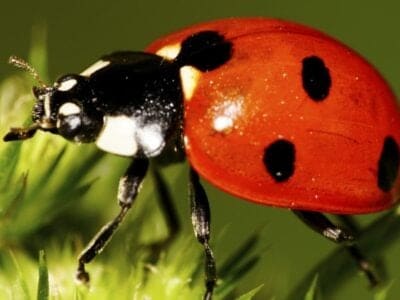
- Kingdom
- Animalia
- Phylum
- Arthropoda
- Class
- Insecta
- Gild
- Coleoptera
- Family
- Coccinellidae
Fun Fact: There are more than 5,000 species worldwide!
Ladybird beetles, otherwise known as ladybugs, have been to outer space and had no trouble catching casualty in Nothing-G. The typical description of the ladybug discusses the ruby-red shell and black spots, but there are many unlike patterns. In fact, the number of spots tin can even differentiate between the many species around today. They have […] Read More than
Lake Sturgeon
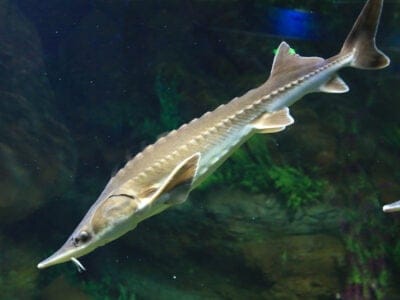
- Kingdom
- Animalia
- Phylum
- Chordata
- Class
- Actinopterygii
- Order
- Acipenseriformes
- Family
- Acipenseridae
- Genus
- Acipenser
- Scientific Name
- Acipenser fulvescens
Fun Fact: Its skeleton is part cartilage and part bone.
"The lake sturgeon is considered a living fish fossil." Also called the rock sturgeon, this foreign-looking, laid-back, long-lived fish hasn't changed much since the Pleistocene epoch. Its body sports dinosaur-like scutes and like a shark its skeleton is made up more often than not of cartilage. Despite its crude looks, its flesh and roe are delectable, and overfishing […] Read More
Lakeland Terrier

- Kingdom
- Animalia
- Phylum
- Chordata
- Course
- Mammalia
- Order
- Carnivora
- Family unit
- Canidae
- Genus
- Canis
- Scientific Proper noun
- Canis lupus
Fun Fact: These dogs were once used by farmers to keep foxes abroad from herds of sheep.
Some Lakeland Terriers have a span of blackness pilus on their back known to breeders as a 'saddle mark. Lakeland Terriers are energetic, intelligent dogs with a 'never quit' attitude. They have a friendly temperament also equally the stubbornness common to many dogs in the Terrier group. These dogs originated in the Lake District […] Read More
LaMancha Caprine animal
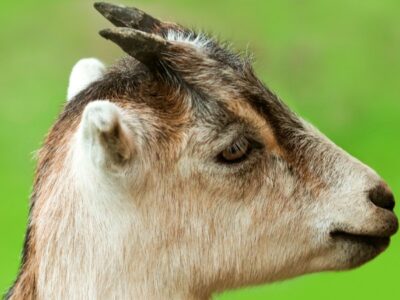
- Kingdom
- Animalia
- Phylum
- Chordata
- Class
- Mammalia
- Order
- Artiodactyla
- Family
- Bovidae
- Genus
- Capra
- Scientific Name
- Capra aegagrus hircus
Fun Fact: Have tiny ears named "gophers" or "elves"
LaMancha goats are full-size dairy goats with a mild temperament. Sometimes called American Lamancha or simply Lamancha, these goats are distinctive for their tiny ears. They are excellent milk producers, and their milk is highly nutritious. For these reasons, LaMancha goats are among the nigh pop dairy goats in the U.Due south. The origin of LaMancha […] Read More
Lamprey
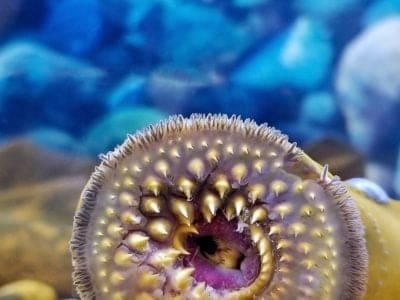
- Kingdom
- Animalia
- Phylum
- Chordata
- Class
- Hyperoartia
- Order
- Petromyzontiformes
Fun Fact: Non related to the eel
The sea lamprey, as well normally known equally the vampire fish, is a parasitic lamprey fish native to the Northern Hemisphere With its eel-like body and jawless, round, sucker-like mouth, bounding main lampreys are often confused with eels merely aren't related to them at all. An invasive species, the lamprey fish decimated lake trout populations in the […] Read More
Lancashire Heeler

- Kingdom
- Animalia
- Phylum
- Chordata
- Class
- Mammalia
- Order
- Carnivora
- Family
- Canidae
- Genus
- Canis
- Scientific Name
- Canis lupus
Fun Fact: The proper name "heeler" comes from the fact that it nips at the heels of cattle to herd them.
When happy and content, the Lancashire Heeler shows off a big grin, nicknamed the Heeler Smile. The Lancashire Heeler (as well known as the Ormskirk Terrier) is a small, affectionate dog, hailing from the northern England county after which it's named. The verbal history is unknown, but the Lancashire Heeler probably originated at some point in […] Read More
Lappet-faced Vulture
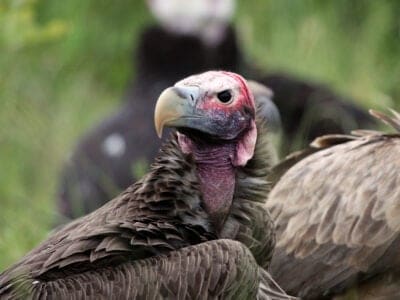
- Kingdom
- Animalia
- Phylum
- Chordata
- Class
- Aves
- Society
- Accipitriformes
- Family
- Accipitridae
- Genus
- Torgos
- Scientific Name
- Torgos tracheliotos
Fun Fact: Lappet-faced vultures are tidy and launder their heads in a body of water after they've eaten
"The Lappet-faced Vulture is Africa's largest vulture" Too called the Nubian vulture, this groovy bird of prey probably makes the lives of other vultures possible. That's considering it is oft the merely vulture strong enough to open up up the carcass of a big animal with a tough hide. Though it has a reputation every bit a […] Read More than
Lapponian Herder
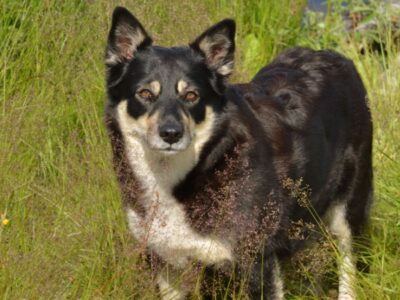
- Kingdom
- Animalia
- Phylum
- Chordata
- Class
- Mammalia
- Order
- Carnivora
- Family unit
- Canidae
- Genus
- Canis
- Scientific Proper name
- Canis lupus
Fun Fact: This brood is also known every bit the Lapp Reindeer Dog and the Lapsk Vallhund.
Until 1966, the Lapponian Herder was still considered to exist the same breed as the Finnish Lapphund. Perfectly adapted for the frigid environment of northern Scandinavia, the Lapponian Herder is an of import working breed developed by the Lapps (also known every bit the Sami), whose ancient community engagement back many centuries. The domestic dog's original purpose was […] Read More
Lawnmower Blenny
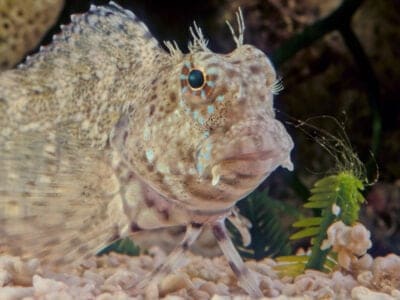
- Kingdom
- Animalia
- Phylum
- Chordata
- Class
- Actinopterygii
- Guild
- Blenniiformes
- Family unit
- Blenniidae
- Genus
- Salarias
- Scientific Name
- Salarias fasciatus
Fun Fact: Must be in temperatures of 78 degrees Fahrenheit to breed
The Lawnmower Blenny (likewise known as the Jeweled Rockskipper, algae blenny, or banded blenny) is a saltwater fish, primarily found in Australasia. It is not sought after as a commercial fish for nutrient, just it is a pop add-on to many fish tanks because of the changing color of its body. 5 Lawnmower Blenny Facts […] Read More
Lazarus Cadger
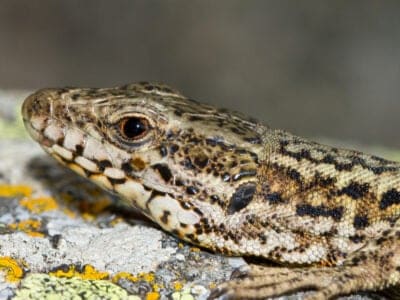
- Kingdom
- Animalia
- Phylum
- Chordata
- Grade
- Reptilia
- Order
- Squamata
- Family
- Lacertidae
- Genus
- Podarcis
- Scientific Name
- Podarcis muralis
Fun Fact: Lazarus Lizards can communicate through chemic and visual signals.
The Lazarus lizard, known as the common wall cadger or the European wall lizard, is an invasive species. Locals prefer to telephone call these reptiles Lazarus lizards in Cinncinnati because of their clan with the Lazarus family unit since they are the reason that this cadger now exists in North America at all. Proper identification ensures that […] Read More than
Leaf-Tailed Gecko
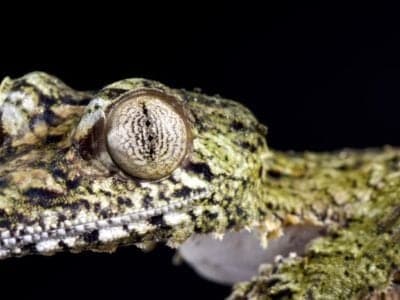
- Kingdom
- Animalia
- Phylum
- Chordata
- Form
- Reptilia
- Order
- Squamata
- Family
- Gekkonidae
- Genus
- Uroplatus
Fun Fact: Only found on Madagascar!
The foliage-tailed gecko, a lengthy lizard, has quite a unique physique. With a broad and triangular head, their name comes from the foliage-like resemblance of their tail. The texture helps them to be camouflaged within their surroundings to conceal themselves confronting the natural leafage in their surroundings. They tend to blend in with the bark […] Read More
Leatherback Bounding main Turtle

- Kingdom
- Animalia
- Phylum
- Chordata
- Course
- Reptilia
- Order
- Testudines
- Family
- Dermochelyidae
- Genus
- Dermochelys
- Scientific Name
- Dermochelys coriacea
Fun Fact: They are the largest living turtle and the but ocean turtle without a hard shell!
The giant Leatherback Sea Turtle is the largest species of living turtle, and one of seven species of sea turtles. Leatherback Sea Turtles do not have a hard shell and have been in their present shell-less class since dinosaurs were still in beingness. Their dark grayness peel is rubbery and stiff, simply also thin and […] Read More
Leech
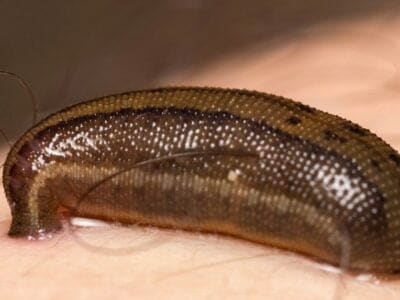
- Kingdom
- Animalia
- Phylum
- Annelida
- Grade
- Clitellata
Fun Fact: Has x pairs of eyes!
The leech (Hirudinea) is a predator and blood-sucking parasite that is native to nearly every continent. This aquatic worm is a fellow member of the Annelida phylum, which means it's related to the earthworm. Leeches have a bad reputation among humans. Nosotros consider them bloodsucking pests and utilise the term "leech" as an insult. Nearly of […] Read More
Lemming
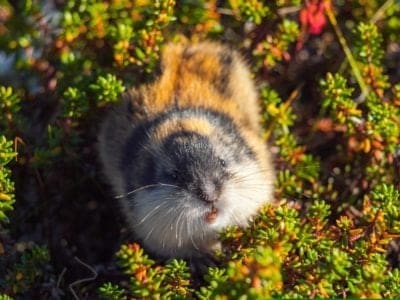
- Kingdom
- Animalia
- Phylum
- Chordata
- Course
- Mammalia
- Order
- Rodentia
- Family unit
- Cricetidae
- Genus
- Lemmus
- Scientific Proper name
- Lemmus Lemmus
Fun Fact: Does non hide during the bitter Arctic wintertime!
The lemming is a tiny rodent that is found in or near the Arctic Circumvolve One of the tiniest rodents, lemmings are animals that are known to exist in or around the Arctic circumvolve and is also known to be closely related to muskrats and voles. They tin can too exist establish in the Tundra biomes. […] Read More
Lemur

- Kingdom
- Animalia
- Phylum
- Chordata
- Class
- Mammalia
- Order
- Primates
- Family
- Lemuridae
- Scientific Name
- Lemur Catta
Fun Fact: Natively found on the island of Madagascar!
"Lemurs are found only on Madagascar." Lemurs are tiny species of primate that are only found on one group of islands: Republic of madagascar and the Comoro Islands. This makes them one of nearly endangered groups of animals on earth. They have tiny bodies with long, thin tails. There are over 100 species of living on the […] Read More
Leonberger

- Kingdom
- Animalia
- Phylum
- Chordata
- Class
- Mammalia
- Lodge
- Carnivora
- Family
- Canidae
- Genus
- Canis
- Scientific Name
- Canis lupus
Fun Fact: This canis familiaris has been used for pulling carts total of appurtenances.
They're sometimes called Leos considering they appear to accept a mane like a lion. The Leonberger brood goes dorsum to the 18th century. Originally bred as companion dogs in Germany, they're descended from the Newfoundland, longhaired Saint Bernard, and Great Pyrenees which are sometimes called the Pyrenean Mount canis familiaris. They're classified in the working group […] Read More
Leopard
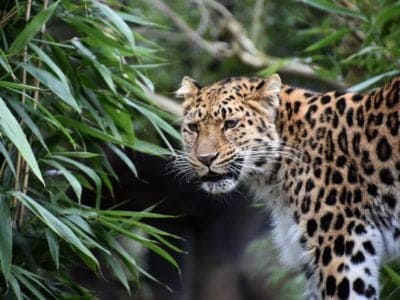
- Kingdom
- Animalia
- Phylum
- Chordata
- Class
- Mammalia
- Order
- Carnivora
- Family
- Felidae
- Genus
- Panthera
- Scientific Name
- Panthera pardus
Fun Fact: Spends much of the time high in the trees!
Leopard Nomenclature and Evolution The Leopard is a medium-sized wildcat that is natively constitute in a variety of different habitats across sub-Saharan Africa and south asia. A fellow member of the "Big True cat" family, the Leopard is an agile and opportunistic hunter that has been able to exploit habitats unused by other big felines every bit information technology […] Read More
Leopard Cat
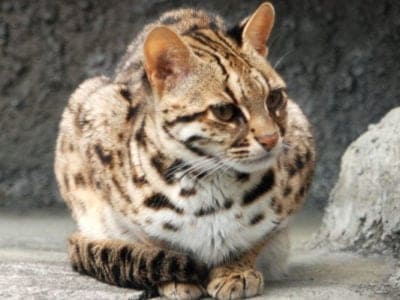
- Kingdom
- Animalia
- Phylum
- Chordata
- Course
- Mammalia
- Order
- Carnivora
- Family
- Felidae
- Genus
- Prionailurus
- Scientific Name
- Prionailurus bengalensis
Fun Fact: In that location are xi dissimilar species!
"A minor, but dominant, predator." The leopard true cat is a small species of feline that is native to many different Asian and Indian regions. These cats are divided amid almost a dozen different sub-species, although most share distinctive colour markings and webbed toes that facilitate their aquatic adventures. These tiny hunters are only virtually the […] Read More
Leopard Frog
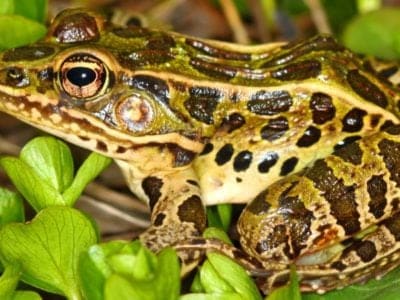
- Kingdom
- Animalia
- Phylum
- Chordata
- Form
- Amphibia
- Society
- Anura
- Family
- Ranidae
- Genus
- Lithobates
Fun Fact: They can jump up to three feet
"Leopard frogs are very popular with humans." Leopard frogs are a popular pet, a delicious food source, and they have found a calling in laboratory experiments in laboratory experiments and science classrooms. Leopard frogs, also known as a meadow or grass frog, is the mutual name for lithobates, the "truthful frog" genus. They share this […] Read More than
Leopard Gecko
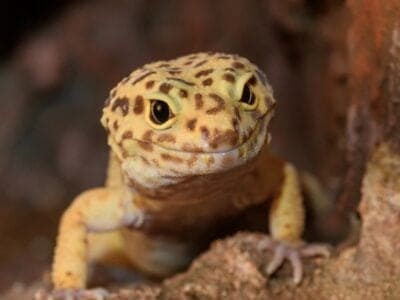
- Kingdom
- Animalia
- Phylum
- Chordata
- Class
- Reptilia
- Order
- Squamata
- Family
- Eublepharidae
- Genus
- Eublepharis
- Scientific Name
- Eublepharis macularius
Fun Fact: The kickoff ever domesticated lizard! There are at present more than than 100 unique color morphs thank you to selective convenance.
"The leopard gecko is the first-ever widely domesticated lizard species! At that place are now more than than 100 unique colour morphs thanks to selective breeding." The leopard gecko has become 1 of the most popular pet reptiles on the planet ever since it was initially domesticated in the 1970s. These curious, docile, and handsome little lizards are […] Read More
Leopard Lizard
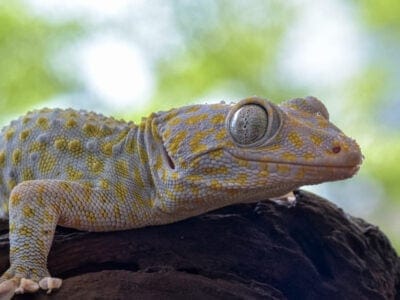
- Kingdom
- Animalia
- Phylum
- Chordata
- Class
- Reptilia
- Guild
- Squamata
- Family unit
- Crotaphytidae
- Genus
- Gambelia
Fun Fact: Can jump a distance of ii feet to capture casualty
"Leopard lizards can spring a altitude of two feet" Leopard lizards live in the southwest United states and in Mexico. In that location are different varieties including the blunt-nosed leopard cadger and the long-nosed leopard lizard. The nutrition of this reptile is omnivorous; information technology eats rodents, insects, leaves, and berries. The lifespan of a wild leopard lizard […] Read More
Leopard Seal

- Kingdom
- Animalia
- Phylum
- Chordata
- Class
- Mammalia
- Order
- Carnivora
- Family
- Phocidae
- Genus
- Hydrurga
- Scientific Proper noun
- Hydrurga Leptonyx
Fun Fact: The world's most aggressive seal species!
Clumsy on land but svelte in the body of water, the leopard seal is a finely skilled predator that thrives in the frigid waters of Antarctica. This highly distinctive species has a gear up of unmistakable features to aid it survive in the wild, including blab and flippers. With few natural predators and plenty of food, the leopard […] Read More than
Leopard Tortoise
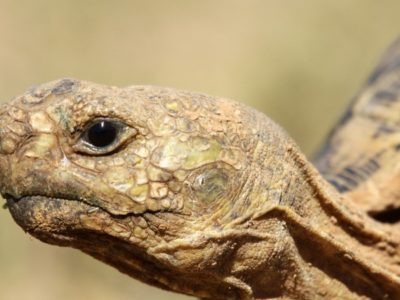
- Kingdom
- Animalia
- Phylum
- Chordata
- Class
- Reptilia
- Social club
- Testudines
- Family
- Testudinidae
- Genus
- Stigmochelys
- Scientific Name
- Stigmochelys pardalis
Fun Fact: The virtually widely distributed tortoise in Africa!
The leopard tortoise is amongst the heavyweights of the tortoise world. Weighing an average of 40 pounds, this species is quite a common spectacle effectually the savannas of sub-Saharan Africa. Like the big cat for which it's named, the leopard tortoise has unmistakable black and yellowish markings, each ane completely unique to the individual. Despite […] Read More
Lhasa Apso

- Kingdom
- Animalia
- Phylum
- Chordata
- Class
- Mammalia
- Social club
- Carnivora
- Family unit
- Canidae
- Genus
- Canis
- Scientific Name
- Canis lupus
Fun Fact: The Lhasa Apso was ofttimes given equally a gift in Tibetan culture
The Lhasa Apso's original Tibetan name is Abso Seng Kye, which actually means (roughly) "bawl lion sentinel canis familiaris." Information technology seems to have some association with the mythical snow lion in traditional Tibetan culture, which is said to protect the country. These dogs were often given as gifts as signs of friendship only never really sold. […] Read More than
Lhasapoo

- Kingdom
- Animalia
- Phylum
- Chordata
- Class
- Mammalia
- Order
- Carnivora
- Family
- Canidae
- Genus
- Canis
- Scientific Proper name
- Canis lupus
Fun Fact: A Lhasapoo's coat can be curly like a poodle'south or long and silky similar a Lhasa Apso's.
A Lhasapoo's coat can be curly like a poodle'south, or long and silky similar a Lhasa Apso'southward. Owning a Lhasapoo is always an adventure because no two Lhasapoos are always quite alike. These cuddly, spunky, highly intelligent dogs are a cross between the Lhasa Apso and the poodle. Some inherit the poodle'southward curly coat while […] Read More than
Liger

- Kingdom
- Animalia
- Phylum
- Chordata
- Class
- Mammalia
- Guild
- Carnivora
- Family
- Felidae
- Genus
- Panthera
- Scientific Name
- Panthera leo × Panthera tigris
Fun Fact: The offspring of a lion and tiger parents!
Liger Classification and Evolution The Liger is the largest of the world's felines, known to abound up to 12ft alpine when standing on their hind legs. Created past the mating of a male Lion with a female Tiger, Ligers tend to far exceed the size of both of their parents and although they share like […] Read More
King of beasts
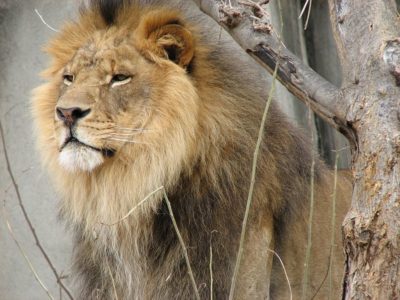
- Kingdom
- Animalia
- Phylum
- Chordata
- Course
- Mammalia
- Social club
- Carnivora
- Family unit
- Felidae
- Genus
- Panthera
- Scientific Name
- Panthera leo
Fun Fact: Lives in small groups called prides!
The panthera leo is Africa's apex predator The lion is one of the largest, strongest, and almost powerful felines in the world, 2d only in size to the Siberian Tiger. They are the largest cats on the African continent. While about big cats are lonely hunters, lions are incredibly sociable animals that live together in family […] Read More than
Lion'due south Mane Jellyfish
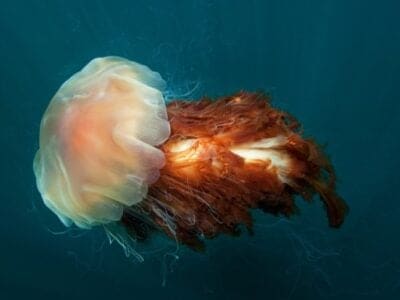
- Kingdom
- Animalia
- Phylum
- Cnidaria
- Form
- Scyphozoa
- Guild
- Semaeostomeae
- Family
- Cyaneidae
- Genus
- Cyanea
- Scientific Name
- Cyanea capillata
Fun Fact: Though it's a huge fauna, the lifespan of the panthera leo's mane jellyfish is just a year.
"The Lion's Mane Jellyfish is the King of the Jellies!" As the lion is the king of terrestrial beasts, the panthera leo'south mane jellyfish must exist the male monarch of the jellies. Named because its orange and gold bong and tentacles remind people of the color and texture of a lion'southward mane, this brute tin accept a […] Read More
Lionfish
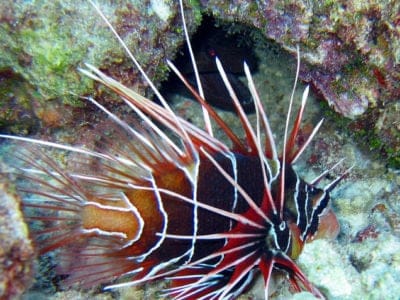
- Kingdom
- Animalia
- Phylum
- Chordata
- Form
- Actinopterygii
- Society
- Scorpaeniformes
- Family
- Scorpaenidae
- Genus
- Pterois
- Scientific Proper name
- Pterois volitans
Fun Fact: Females can release up to 15,000 eggs at a fourth dimension!
Lionfish are a grouping of carnivorous fish species that are native to the Indian and Pacific oceans. While there is plenty of diversity between the unlike species, all of them are characterized past striking skin colour and pronounced venomous spines protruding from their torso. The venom conveyed by their sting is a powerful deterrent to […] Read More
Little Brown Bat
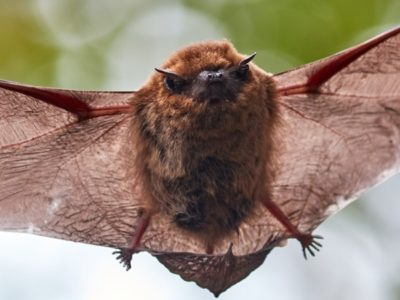
- Kingdom
- Animalia
- Phylum
- Chordata
- Class
- Mammalia
- Guild
- Chiroptera
- Family
- Vespertilionidae
- Genus
- Myotis
- Scientific Proper name
- Myotis lucifugus
Fun Fact: The piffling chocolate-brown bat uses echolocation to quickly navigate around its environment
The little brown bat is one of the most common species of bats in Due north America. Cloistered in caves and roosts during the day, this elusive and cryptic fauna is often unloved or even shunned by humans. Still, bats play an important role in the ecosystem every bit one of the largest consumers of pests and […] Read More than
Little Penguin

- Kingdom
- Animalia
- Phylum
- Chordata
- Class
- Aves
- Club
- Sphenisciformes
- Family
- Spheniscidae
- Genus
- Eudyptula
- Scientific Name
- Eudyptula Minor
Fun Fact: The smallest species of penguin!
"The Smallest Penguin Species" Small fries of the Spheniscidae family unit, little penguins are native to Australia and New Zealand. Standouts in the penguin-sphere, they sport bright blueish feathers and sometimes go past "fairy penguins." Piffling penguins provender and frolic in body of water waters 80 percentage of the time and can lay more than 1 clutch of […] Read More
Lizard
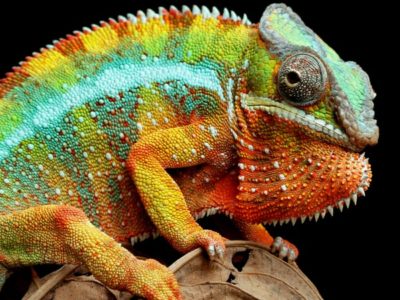
- Kingdom
- Animalia
- Phylum
- Chordata
- Class
- Reptilia
- Society
- Squamata
- Family
- Lacertidae
Fun Fact: In that location are effectually 5,000 unlike species!
Lizards are reptiles of the order Squamata. This includes the cadger suborder which bears the scientific name of Lacertilia, the ophidian suborder Serpentes, and the worm lizard suborder Amphisbaenia. Lizards are paraphyletic, which means that a small number of species share more in common with their sister suborders than they do with their own order […] Read More
Lizardfish
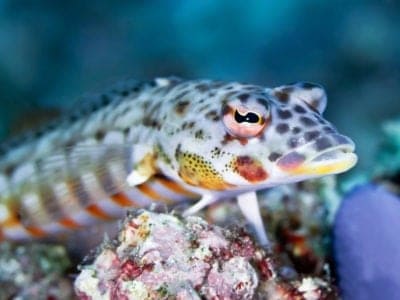
- Kingdom
- Animalia
- Phylum
- Chordata
- Class
- Actinopterygii
- Order
- Aulopiformes
- Family
- Synodontidae
- Genus
- Synodus Scopoli
- Scientific Name
- Synodus lucioceps
Fun Fact: The lizardfish can camouflage itself against the sandy bottom to avoid predators.
The lizardfish is a family of around 57 unlike species (the near common of which are probably the inshore and brushtooth lizardfish) that live mainly virtually the coast. Lizardfish have a huge mouth full of teeth, including on their tongues. Despite the lizardfish's abrupt teeth, they are not very dangerous to humans. They are also […] Read More than
Llama

- Kingdom
- Animalia
- Phylum
- Chordata
- Grade
- Mammalia
- Club
- Artiodactyla
- Family
- Camelidae
- Genus
- Lama
- Scientific Name
- Lama Glama
Fun Fact: Natively plant in the Andes Mountain range!
One of the Few Animals that Humans Can Safely Hug Dependable, lovable, and at-home, llamas are domesticated pack animals traditionally used by Andean cultures in the mountains of South America. Additionally, over the past four decades, they have been imported by farmers, breeders, and exotic pet lovers the world over. Learn virtually the friendliest animals […] Read More
Loach
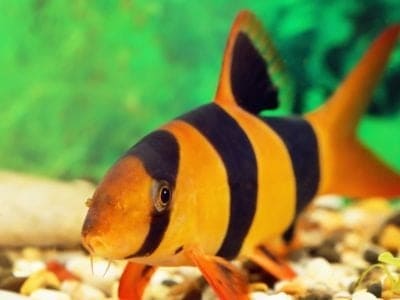
- Kingdom
- Animalia
- Phylum
- Chordata
- Class
- Actinopterygii
- Order
- Cypriniformes
Fun Fact: Have abrupt spines below their eyes
Many species of loach are popular in the aquarium trade. The loach superfamily of fishes consists of over 1200 species, most of which are distributed in central and southern Asia. Some species are also found in Europe and Africa. They are known for their bottom-feeding and the barbels found close to their mouths. Loach fish […] Read More
Lobster
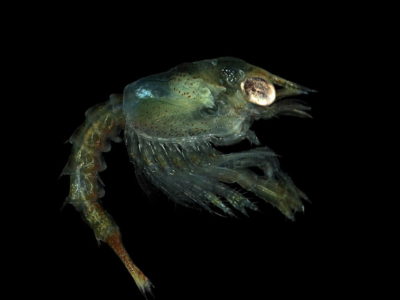
- Kingdom
- Animalia
- Phylum
- Arthropoda
- Lodge
- Decapoda
- Family
- Nephropidae
- Scientific Name
- Nephropidae
Fun Fact: Have been known to reach 100 years erstwhile!
"Could lobsters concord the primal to eternal life?" Lobsters are a family of crustaceans that live in waters beyond about of the world's coastlines. There are thirty known species of clawed lobsters and 45 species of spiny (or rock) lobsters. The largest lobster species is the American lobster, which tin can be institute from the coasts […] Read More
Locust
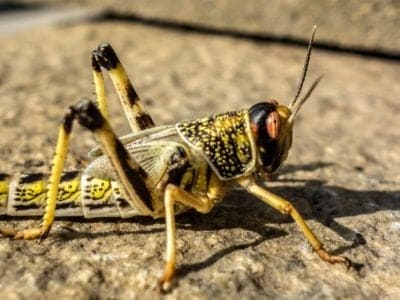
- Kingdom
- Animalia
- Phylum
- Arthropoda
- Class
- Insecta
- Order
- Orthoptera
- Family
- Acrididae
Fun Fact: Each locust can eat its weight in plants each day.
The word "locust" is given to certain types of grasshoppers with short horns. They are known for their swarming behavior, which occurs when ecology conditions are correct. Locust plagues accept afflicted crops and farmland since biblical times, attacking any growing dark-green vegetation in their path. Colloquially, the word "locust" refers to different creatures depending on […] Read More
Solitary Star Tick
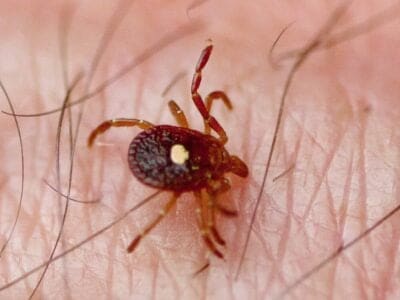
- Kingdom
- Animalia
- Phylum
- Arthropoda
- Class
- Arachnida
- Order
- Ixodida
- Family unit
- Ixodidae
- Genus
- Amblyomma
- Scientific Name
- Amblyomma americanum
Fun Fact: But females have the 'lone star' marking
"Lone star ticks were first observed in 1754 in New York." Ticks may exist one of the most feared insects on the planet. They not only inflict painful, traumatizing bites, they're also vectors for many serious diseases. On top of that, their bites tin cause painful allergic reactions, and even make victims allergic to scarlet […] Read More
Long-Eared Owl
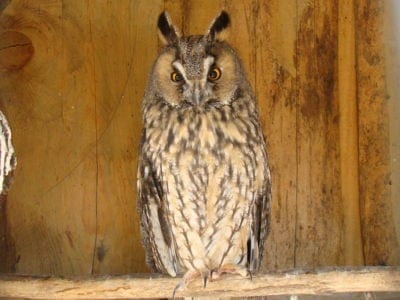
- Kingdom
- Animalia
- Phylum
- Chordata
- Class
- Aves
- Order
- Casuariiformes
- Family
- Casuariidae
- Genus
- Casuarius
- Scientific Name
- Casuarius
Fun Fact: Ear tufts brand it look bigger!
"The hooting sounds of a male long-eared owl tin be heard almost a mile abroad" The long-eared owl makes its home in Due north America, Europe, parts of Asia every bit well as in northern and eastern parts of Africa, including Republic of madagascar. It nests in forests where the trees grow shut together. Long-eared owls hunt at night […] Read More than
Long-Haired Rottweiler

- Kingdom
- Animalia
- Phylum
- Chordata
- Class
- Mammalia
- Social club
- Carnivora
- Family
- Canidae
- Genus
- Canis
- Scientific Name
- Canis lupus
Fun Fact: Rottweilers accept a trend to snore.
The ancestor of the Rottweiler would march over the Alps with Roman legions to protect them and bulldoze their cattle. The Rottweiler is a strong, muscular working breed that descended from big mastiff-like dogs back in the Roman catamenia. They were originally put to use herding livestock, pulling carts, and protecting their owners. The modern […] Read More
Long-Tailed Tit
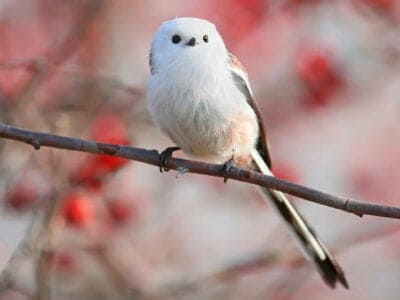
- Kingdom
- Animalia
- Phylum
- Chordata
- Class
- Aves
- Order
- Passeriformes
- Family unit
- Aegithalidae
- Genus
- Aegithalos
- Scientific Name
- Aegithalos caudatus
Fun Fact: Often hangs upside down while feeding!
"Often hangs upside downwards while feeding!" Long-tailed tits are frequent visitors to gardens and parks in the United Kingdom, where they are arable. These minor, fluffy birds welcome visitors with their adorable looks and sweetness, cheerful songs. The primary identification marks are their round bodies and white plumage. Most long-tailed tits also have stake pink […] Read More
Longnose Gar
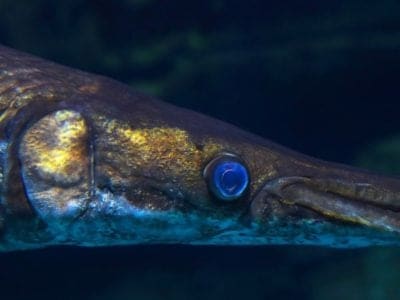
- Kingdom
- Animalia
- Phylum
- Chordata
- Grade
- Actinopterygii
- Social club
- Lepisosteiformes
- Family unit
- Lepisosteidae
- Genus
- Lepisosteus
- Scientific Proper name
- Lepisosteus osseus
Fun Fact: The longnose gar species of the gar family has potentially existed for 100 million years.
The longnose gar, which sometimes goes past the name needle nose gar instead, is a fish species that belongs to the gar family unit. This fish is also called the Billy gar. They are greyish to olive in colour. The colour, even so, fades into white forth the sides of the longnose gar's body. They can exist […] Read More than
Lorikeet

- Kingdom
- Animalia
- Phylum
- Chordata
- Grade
- Aves
- Order
- Psittaciformes
- Family
- Psittaculidae
Fun Fact: The lorikeet has a long castor-like tongue with fine hairs on it
The lorikeet is among the most colorful birds in the entire earth. They almost seem to luxuriate in their assuming and garish plumage. Every bit a type of arboreal parrot, at that place are nigh 40 documented species of lorikeets, the near well-known probably being the rainbow lorikeet. They are closely related to other types of arboreal parrot […] Read More
Lowchen

- Kingdom
- Animalia
- Phylum
- Chordata
- Grade
- Mammalia
- Club
- Carnivora
- Family unit
- Canidae
- Genus
- Canis
- Scientific Name
- Canis lupus
Fun Fact: This breed is also known as the "Fiddling Lion Canis familiaris" for their bravery and manes.
Despite being treasured throughout Continental Europe for generations, the Lowchen earned the designation of the rarest brood in existence for a menstruation in the 1960s. At their low point at that place were only 65 living members of the species. The Lowchen was once 1 of the favored pets of European nobility, and they wait and act […] Read More
Lumpfish
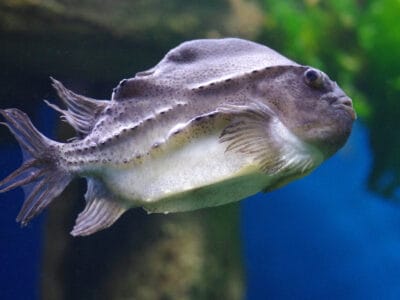
- Kingdom
- Animalia
- Phylum
- Chordata
- Class
- Actinopterygii
- Social club
- Scorpaeniformes
- Family unit
- Cyclopteridae
- Genus
- Cyclopterus
- Scientific Name
- Cyclopterus lumpus
Fun Fact: The lumpfish have gummy suction cups on their fins
Lumpfish accept suction cups on their fins to attach to various surfaces. The lumpfish, besides known as the lumpsucker, is a family of marine fish that come in many different colors, including blueish, brown, and blackness. There are 30 recognized species spread all over the world. Their lumpy, uneven, gelled skin and airship-shaped torso requite […] Read More than
Lungfish

- Kingdom
- Animalia
- Phylum
- Chordata
- Class
- Sarcopterygii
- Order
- Dipnoi
- Scientific Proper name
- Dipnoi
Fun Fact: The lungfish outset evolved almost 400 million years ago.
The lungfish first evolved virtually 400 million years ago. The modern lungfish is the product of an ancient lineage that dates back almost 400 million years. This "living fossil" is sometimes called primitive, merely that does not mean its features are undeveloped, just that it has changed very little since first evolving. The most interesting […] Read More
Lynx
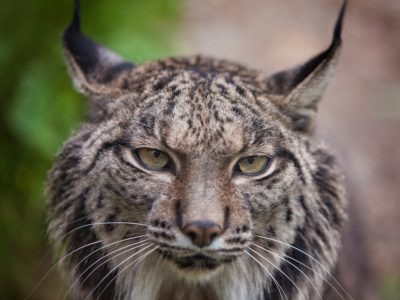
- Kingdom
- Animalia
- Phylum
- Chordata
- Class
- Mammalia
- Order
- Carnivora
- Family
- Felidae
- Genus
- Lynx
- Scientific Proper name
- Felis lynx
Fun Fact: Live in dens in rocks and under ledges!
Equally solitary and stealthy predators, the lynx is rarely seen by humans. The Canada lynx is ane of the biggest wild cats in North America, but other species of these cats also inhabit Europe and Asia. The lynx is easy to spot with its huge furry paws, stubby tail, and long ear tufts. The huge […] Read More
Lyrebird
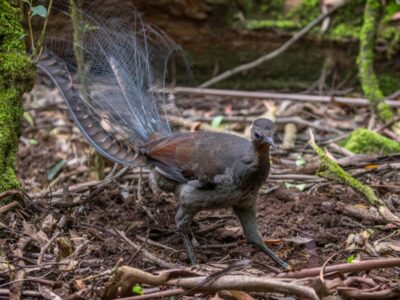
- Kingdom
- Animalia
- Phylum
- Chordata
- Form
- Aves
- Society
- Passeriformes
- Family
- Menuridae
- Genus
- Menura
Fun Fact: Lyrebirds mimic birds of prey to deter predators such equally birds of prey.
The Lyrebird is described as "Nature's Best Mimic" The largest of all the perching birds or songbirds, this bird impresses not merely with its uniquely cute tail feathers simply with its elaborate songs and incredible skill at mimicry. This Australian bird uses its vocalization to imitate everything from a jackhammer to a chainsaw to a […] Read More than
Popular Animals starting with Fifty

King of beasts
Lives in small groups chosen prides!

Newest Animals that Kickoff with the Letter L
The most recently added Animals that start with the letter L.

Lumpfish
The lumpfish have sticky suction cups on their fins


Lappet-faced Vulture
Lappet-faced vultures are tidy and wash their heads in a body of h2o subsequently they've eaten

Source: https://a-z-animals.com/animals/animals-that-start-with-l/
Posted by: stewartfaturaved.blogspot.com

0 Response to "What Is A Animal That Starts With L"
Post a Comment